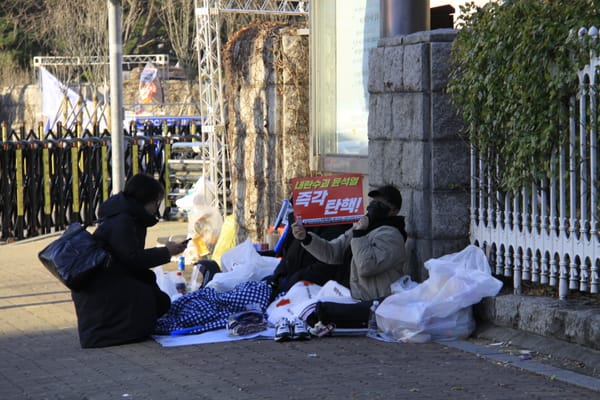Asia Undercovered Round-up: 26 July 2023
Undercovered last week
The crisis in Xinjiang had faded away from the headlines, likely due, in part, to the increasing difficulty that journalists face in accessing the region. But RFA was, despite these barriers, able to uncover how teenage Uyghurs are being forced to work in garment factories through secret agreements (Shohret Hoshur).
Could Inner Mongolia, a region controlled by China, become the next Xinjiang? Eryk Bagshaw gives a profile of Balijinima Bai, a former language activist now in exile, and his fears that the Chinese government is systematically wiping out Mongolian culture (SMH).
It's been more than a year since crisis engulfed Sri Lanka, leading to the President's flight from the country. Now, argues David Brewster, the country has a chance to reposition itself regionally as it makes a remarkable recovery (Lowy).
Deeply worrying. A Myanmar refugee activist, Thuzar Maung, and her family, were abducted last week from their residence in Malaysia in what many fear was a planned operation. Their whereabouts remain unknown (HRW).
In contrast to last week, when we shared a pessimistic piece about the opposition to the junta, this piece in Progressive Voice argues that the power of the military is dwindling, as it loses ground every day, and that resistance is strong.
There is growing opposition to Indonesia government's plans to resume sand exports, which could harm marine and river ecosystems. The trade in sand has been linked to organized crime globally (Mongabay).
It wasn't that long ago that Pakistan's military pledge to not meddle in politics. But recent turmoil has shown the power that they still wield, and that political parties can only govern with, not against, the will of the generals (Ayesha Jehangir, Madras Courier).
Electoral Politics
Keep an eye out for a special issue on the Cambodia elections early next week.
Geopolitics
As Chinese investment flows into Southeast Asia, it comes with a lack of transparency and, as a new report details, numerous social and environmental abuses. Quite worryingly, Chinese companies were far less likely to respond, or have grievance mechanisms, than their western or Asian counterparts (Antonia Timmerman, China Global South Project).
The Himalaya region, where Tibet, India, China, Pakistan, Afghanistan and numerous other countries converge, has long been a contested region. In this piece, Amish Raj Mulmi asks a simple question - whose Himalaya is it - to explore the complex geopolitics and history of the region (Himal Mag).
Solutions Stories
A thread well-worth checking out on Mastodon
And I thoroughly enjoyed reading this piece by Ankita Dhar Karmakar that takes us through the historical sites of India's capital, Delhi, through its less-well-known queer history, revealing some less known insights (Behan Box).
Asia Undercovered: Round-ups and in-depth analysis of the news, events, trends and people changing Asia, but not getting enough attention in the US media. Curated by journalist Nithin Coca.



